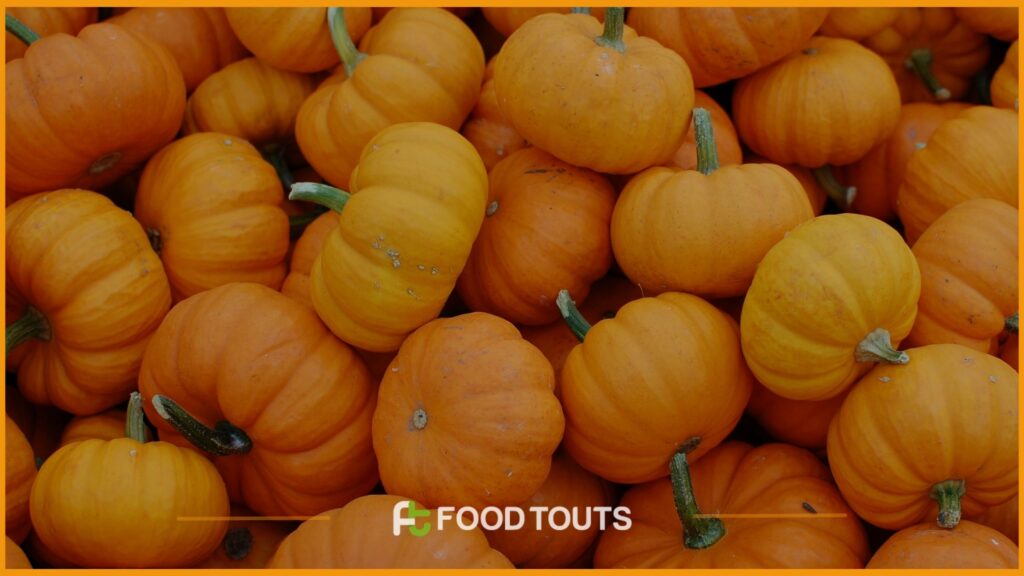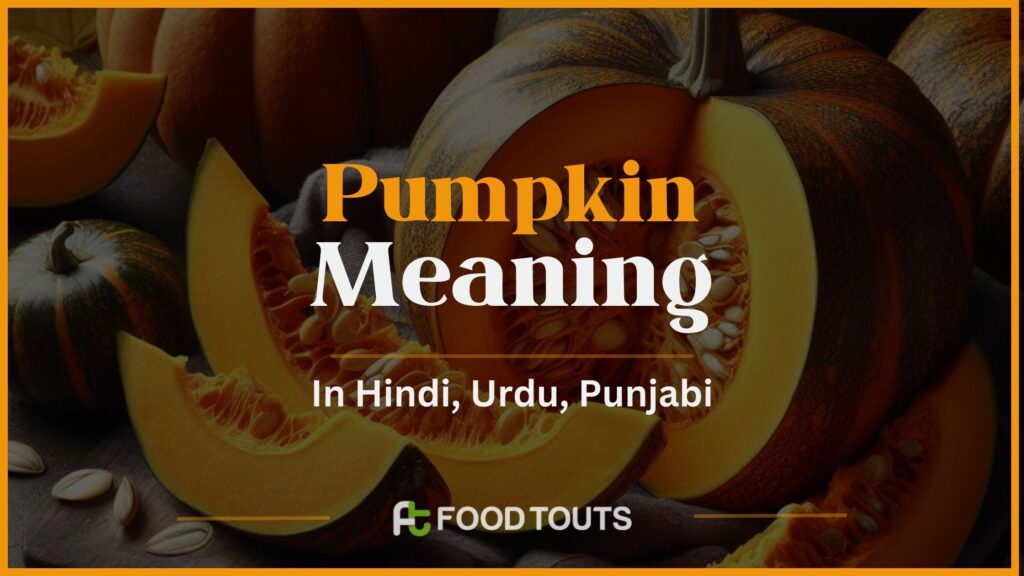Pumpkins are not just a staple in the West; they have found their way into various cultures around the world, including Urdu, Hindi, Punjabi, and Persian-speaking regions. In this article, we will explore the meaning and cultural significance of pumpkins in these languages, along with their culinary and health-related aspects.
The Origin of the Word “Pumpkin”

The word “pumpkin” has an interesting origin. It comes from the Greek word “pepon,” which means “large melon.” The French adapted it as “pompon,” and the English later changed it to “pumpion” or “pumpkin.” This name reflects the fruit’s robust and rounded appearance.
Pumpkin in Urdu | “کدو”
In Urdu, the word for pumpkin is “کدو” (kadu). Kadu is a versatile ingredient used in various traditional dishes, such as kadu ki sabzi, a spiced pumpkin curry. Its sweet and earthy flavor is appreciated in many Pakistani and Indian recipes.
Pumpkin in Hindi | “कद्दू”
In Hindi, a pumpkin is called “कद्दू” (kaddu). Kaddu is a popular choice in North Indian cuisine, often used to prepare dishes like kaddu ki sabzi and kaddu ka halwa, a delicious pumpkin-based dessert.
Pumpkin in Punjabi | “ਕੜਦੂ”
The Punjabi name for pumpkin is “ਕੜਦੂ” (karadu). Karadu is used in various Punjabi dishes, adding a unique flavor and texture to the cuisine. Pumpkin paranthas and karadu da halwa are just a few examples of how it is used.
Pumpkin in Persian | “خورش کدو” or “هلوا سبز” or “کدو”
In Persian, the word for pumpkin is “کدو” (kadu) or “هلوا سبز” (helva sabz). It is utilized in Iranian cuisine to create delightful dishes like “خورش کدو” (khoresh-e kadu), a pumpkin stew often enjoyed with rice.
Culinary Uses of Pumpkin
Pumpkins are known for their culinary versatility. They can be roasted, steamed, or used in soups, stews, and even desserts. The sweet and nutty taste of pumpkin adds depth to various dishes, making it a favorite ingredient in many cuisines.
Nutritional Value of Pumpkin
Pumpkins are not only delicious but also nutritious. They are a good source of vitamins and minerals, particularly vitamin A, which is essential for maintaining healthy vision and skin. Additionally, they are rich in antioxidants and fiber.
Health Benefits of Pumpkin
The consumption of pumpkin has several health benefits. It can aid in weight management, support heart health, and boost the immune system. The presence of beta-carotene in pumpkins is known for its potential in preventing certain types of cancer.
Pumpkin in Traditional Medicine
In traditional medicine, pumpkins have been used to treat various ailments. They are believed to have anti-inflammatory properties and are used in natural remedies for conditions like arthritis.
Cultural Significance

Pumpkins have cultural significance beyond their culinary uses. In many cultures, they are associated with festivals and celebrations, like Halloween in the West and the Persian festival of Yalda Night, where pumpkin dishes are prepared to mark the winter solstice.
Fun Pumpkin Facts
- The world record for the heaviest pumpkin weighed over 2,600 pounds.
- Pumpkins are fruits, and they belong to the gourd family.
- Pumpkin seeds, known as pepitas, are a nutritious snack.
The word “pumpkin” may have different names in various languages, but its popularity and significance in culinary and cultural contexts are universal. Whether you call it “kadu,” “kaddu,” “karadu,” or “kadu,” the pumpkin is a versatile and nutritious food with a rich history.
FAQs
Q1: Are pumpkins native to any of the mentioned regions?
A1: Pumpkins are native to North America but have been widely adopted in Urdu, Hindi, Punjabi, and Persian cuisines.
Q2: Can I use pumpkin for skin care?
A2: Yes, pumpkin is rich in vitamins and antioxidants that can benefit your skin when used in skincare products.
Q3: What is the best way to cook pumpkin dishes?
A3: Pumpkins can be roasted, steamed, or used in various recipes like curries and desserts.
Q4: Are pumpkin seeds edible, and do they have health benefits?
A4: Yes, pumpkin seeds are edible and packed with nutrients. They are known for their potential health benefits.
Q5: What are some traditional pumpkin dishes in these cultures?
A5: Traditional dishes include kadu ki sabzi in Urdu, kaddu ka halwa in Hindi, karadu da halwa in Punjabi, and khoresh-e kadu in Persian.

